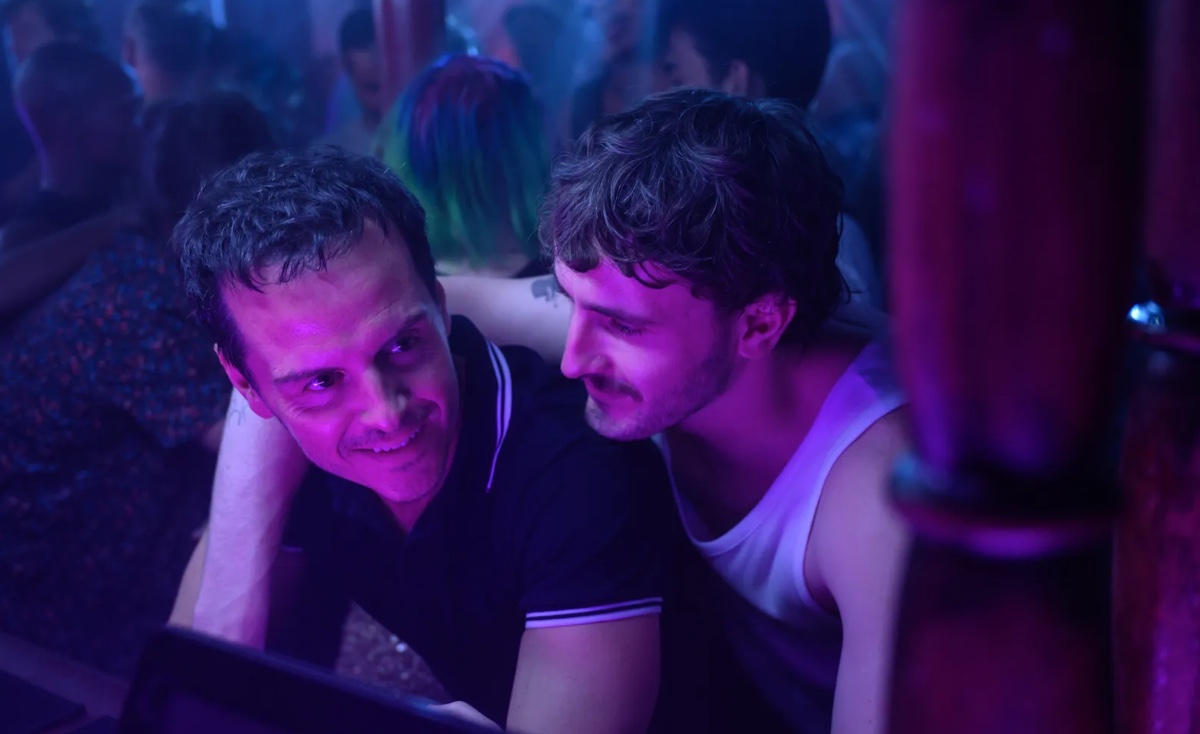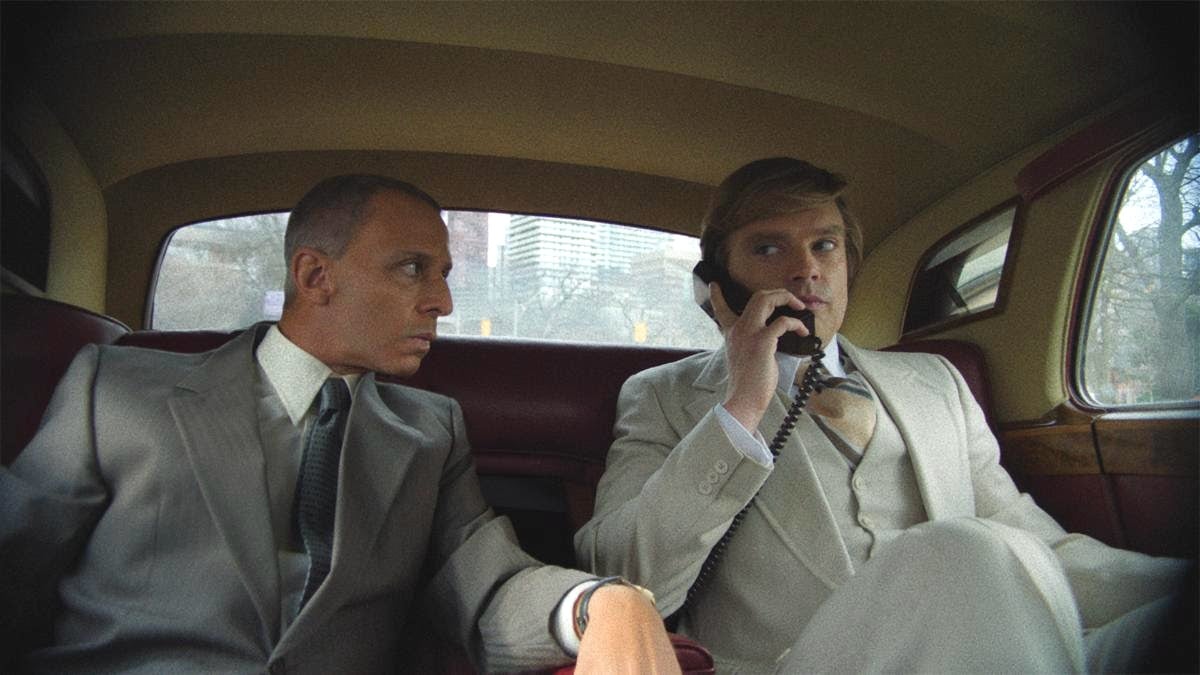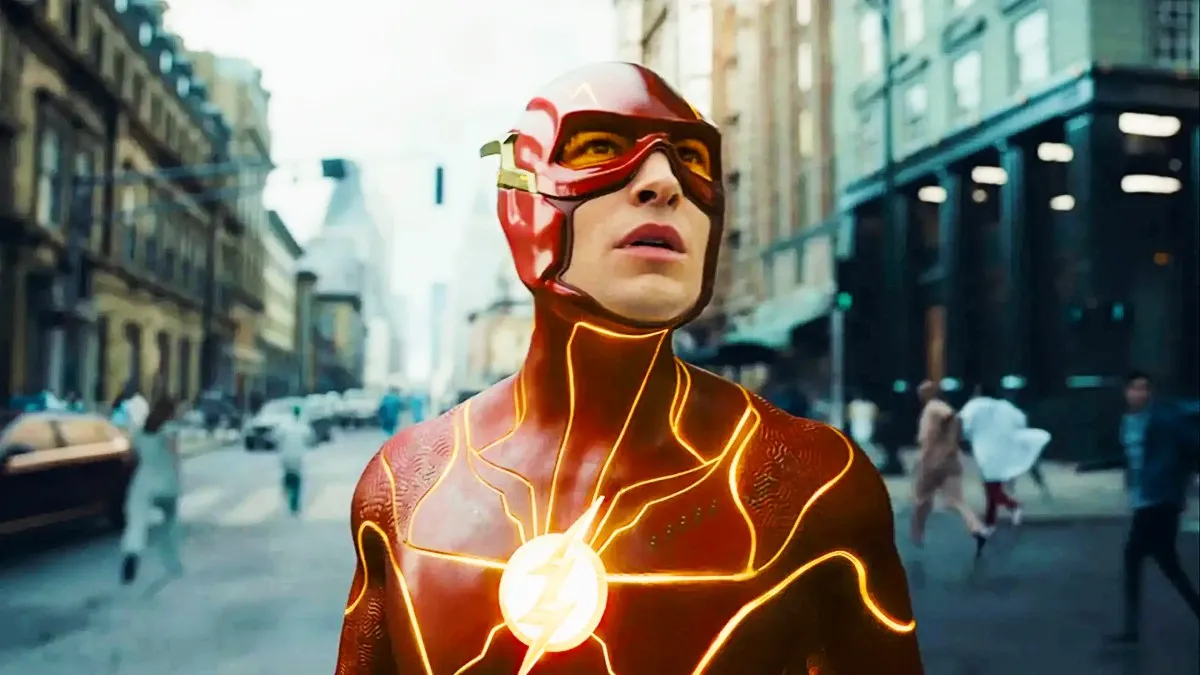The irish heartthrob Paul Mescal’s latest film, sees him playing the boyishly charming love interest to Andrew Scott’s lonely screenwriter in All of Us Strangers, Andrew Haigh’s sorrowful supernatural drama.
Following a breakout turn opposite Daisy Edgar-Jones in 2020’s Normal People, Paul Mescal has quickly wormed his way into the internet’s collective hearts with effortlessly charismatic and intensely affecting performances in flicks like Aftersun and The Lost Daughter. Though Mescal, Scott, and costars Jamie Bell and Claire Foy pack the film with a quartet of poignant performances, All of Us Strangers gets caught up in the mystique of its premise, rendering a deeply personal tale of grief distant and opaque.
Based on the 1987 novel of the same name by Taichi Yamada, All of Us Strangers follows Adam (Scott), a debilitatingly lonely gay screenwriter who’s one of the few residents in a massive, newly-constructed apartment building. After a chance run-in with fellow tenant Harry (Mescal), the two strike up a fledgling romance—but their would-be relationship is torpedoed by Adam’s constant visits to his childhood home, where he speaks to the ghosts of his parents, who appear exactly as they did the day they died 30 years ago.
Certainly, Yamada’s premise is a fascinating, emotional one—a very literal but no less potent way to examine how grief and loss can stunt emotional growth, following Adam into his adult life and shaping him into an lonely introvert unsure of what love even feels like. Adam is a sometimes painfully relatable protagonist who carries additional baggage as a queer man—coming out is hard enough; coming out to the ghosts of your parents whose sensibilities are squarely stuck in 1987 is another endeavor entirely.
Like Charles Melton’s turn in May December, there’s a stunted sort of youthfulness that Andrew Scott brings to Adam, a sort of emotional immaturity and inexperience that emphasizes just how stuck he is in the past, unable to move past his own grief. Scott’s performance is the centerpiece of the film, and though the direction itself doesn’t do him many favors (more on that below), Scott himself is in fine form, especially when opposite Foy and Bell as his dearly departed parents.
As for the ghosts themselves (simply credited as “Mum” and “Dad”), the duo is strangely underused for a film that builds its premise around their existence—there’s far more time spent with Adam staring out into the middle distance alone in his apartment or making out with Harry than there is digging into the emotional quagmire that is Adam’s ghost situation. It’s a shame, too, because Foy and Bell both give thoughtful, surprisingly comedic performances that vividly capture their ’80s attitudes while also reckoning with the complicated nature of their current connection to their adult son.
There are moments where the film hints at Mum and Dad’s guilt or reluctance about appearing to Adam—that in trying to comfort their son, they’re stopping him from being able to truly move on. But because they’re physically confined to Adam’s childhood home, the film doesn’t visit them nearly as often as they deserve, and instead, the characters feels strangely tertiary, despite their massive impact on Adam and his state of mind. Ironically, though, Harry isn’t particularly well-developed, either.
Though he has plenty of screen time, it’s spent making doe eyes at Adam, making quips about their generational differences, and making on his new partner whenever possible—at times, he feels more like a manic pixie dream boy or a figment of Adam’s imagination than an actual person. It’s a shame, too, because while Mescal still turns on the charm and makes Harry and endearing character, there are cracks in his exterior that are never fully explored. Especially in the third act, Harry’s character takes a sudden heel-turn that’s not entirely out of nowhere but feels painfully underdeveloped, leaving the twist feeling arbitrary and underbaked rather than an effective end to Harry’s story.
Despite the fact that the film features extensive sequences of the Adam alone with his own thoughts, the attempts to emphasize the loneliness of his character through cinematography and editing instead bleed into the tone of the film itself, making it feel sluggish and clinical. To some extent, it’s effective in creating a similar sense of loneliness and existential dread that Adam himself is going through, but when Mescal, Foy, and Bell bring such warmth and vulnerability with their performances, the filmmaking style renders these moments ineffectual.
Paradoxically devastating yet detached, All of Us Strangers’ narrative hook and cast make for a solid watch, but the stylistic and directorial shortcomings rob the film of maximum emotional potential. Though Bell, Foy, Mescal, and Scott are across-the-board tearjerkers, there’s not quite enough nuance or personality to make this lonely ghost story sing.
(featured image: Searchlight Pictures)









Published: Dec 5, 2023 10:37 am